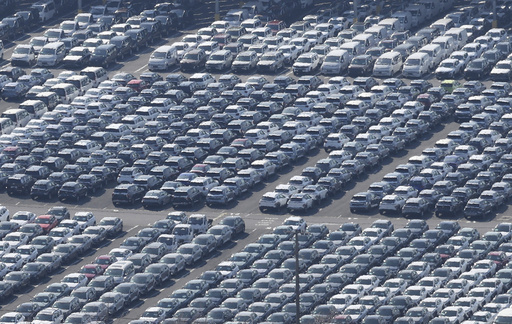
SEOUL, South Korea — In a recent development, South Korean government officials have reached out to the Trump administration with a request to exempt their country from proposed tariffs aimed at trade partners. They emphasized that under the existing free trade agreement, South Korea is already maintaining low tariff rates on U.S. products.
Deputy Trade Minister Park Jong-won communicated this desire during his visit to Washington where he held discussions with various officials from the White House, the Department of Commerce, and the Office of the U.S. Trade Representative. However, details on the feedback he received from American officials were not disclosed by the South Korean Trade Ministry.
Park highlighted the significant contributions of South Korean businesses to the American economy through substantial investments and reiterated that Seoul is already leveraging low tariff rates for its free trade agreements, including with the United States. He urged the U.S. to exclude South Korea from plans to introduce reciprocal tariffs, particularly concerning the proposed increases on imported steel and aluminum, according to reports from the ministry.
This month, South Korea’s principal economic think tank revised its forecast for the country’s economic growth for the second time since late last year, citing worries over the implications of the expanding tariffs implemented by President Trump and other measures aimed at transforming global trade dynamics.
The Korea Development Institute, which is a state-backed organization, anticipates a 1.6% growth for the national economy in 2025, a decrease of 0.4 percentage points from earlier predictions. Although the economists believe that Trump’s tariffs on steel and aluminum will not significantly impact South Korea—as these commodities represent less than 1% of its total exports to the U.S.—there are concerns that proposed tariff hikes on semiconductors and automotive products could adversely affect the nation’s trade-oriented economy.
Simultaneously, South Korea’s acting president, Choi Sang-mok, convened a meeting with officials from trade and foreign policy sectors to evaluate the possible repercussions of Trump’s trade initiatives, which include the implementation of reciprocal tariffs as well as product-specific duties affecting semiconductors, cars, and pharmaceuticals.
Choi, who also holds the position of finance minister, has directed officials to monitor how major economies like the European Union, Japan, and China are responding to these American trade policies, encouraging them to effectively convey South Korea’s perspective to U.S. representatives.
South Korea’s trade surplus with the United States reached $55.7 billion in 2024, with the South Korean Trade Ministry reporting that the tariff rates on manufacturing imports from the U.S. hover around zero percent.

